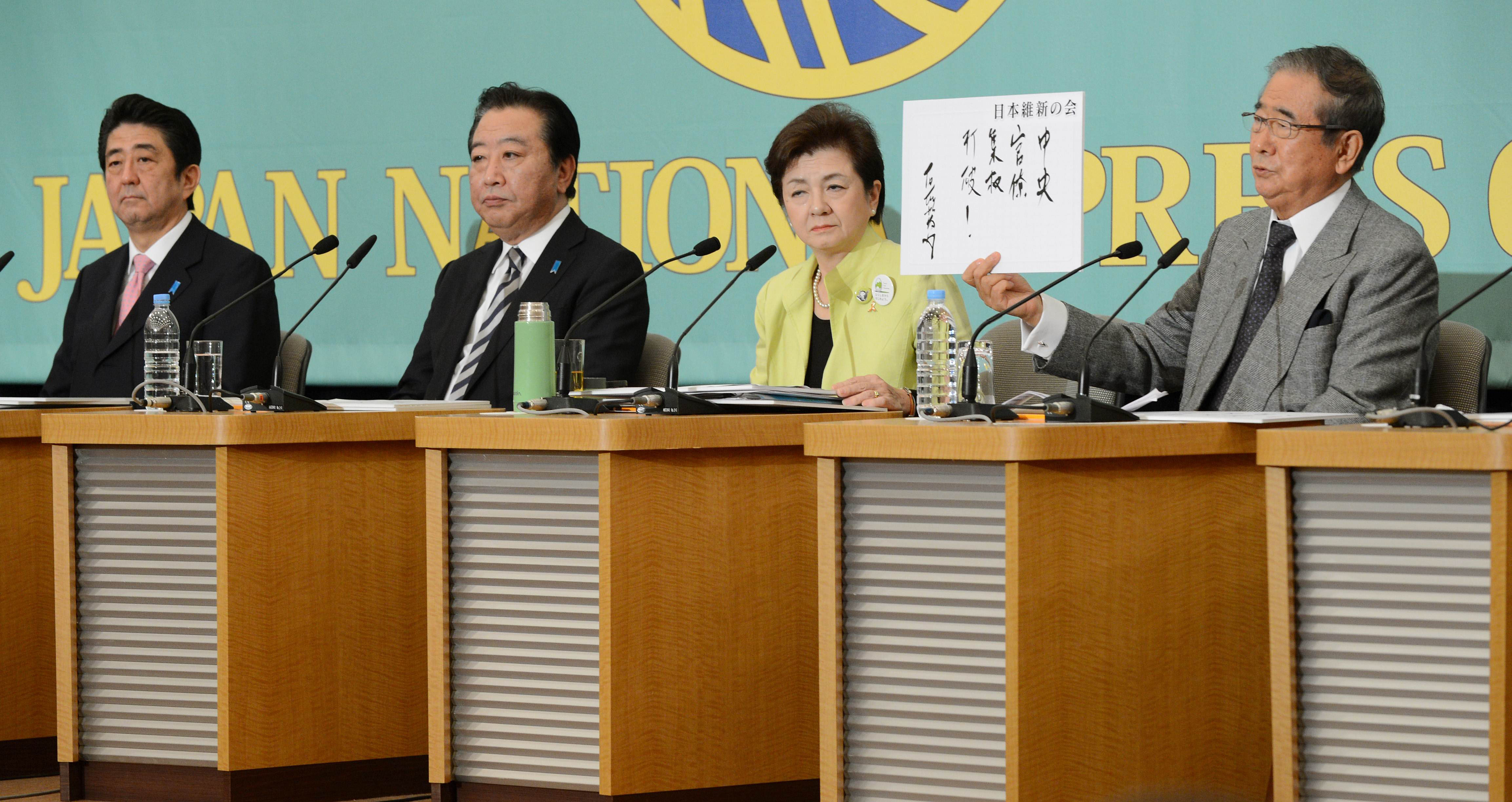Political parties in Japan are busy preparing for the Dec. 16 Lower House election. Each day, voters face new or newly merged parties, most of them determined to become part of the "third political force" or "third pole" forming to challenge the ruling Democratic Party of Japan and its two rivals — the conservative Liberal Democratic Party and Buddhist-backed New Komeito.
As the political landscape morphs, voters are facing a multitude of new policy platforms and pledges. Is this a good sign for democracy and long-term policymaking in Japan? Or are we just witnessing another round of traditional pork-barrel politics? Unfortunately, the latter seems to be the case.
Three years ago, expectations for fundamental change were running high after a historic shift in power from the LDP to the DPJ. The DPJ campaigned on and prevailed with a manifesto studded with high-profile pledges that included child-rearing allowances and toll-free expressways, but also a far-reaching promise to take back power from the vaunted bureaucracy.

















With your current subscription plan you can comment on stories. However, before writing your first comment, please create a display name in the Profile section of your subscriber account page.